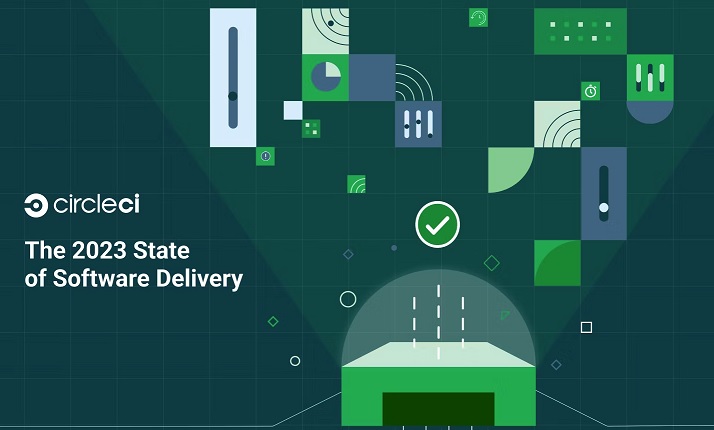Check Point® Software Technologies Ltd.(link is external) has emerged as a leading player in Attack Surface Management (ASM) with its acquisition of Cyberint, as highlighted in the recent GigaOm Radar report.
"Are we a high-performing engineering team?"
This is a question that many organizations ask themselves each year.
In the pursuit of achieving high software delivery performance, companies often rely on engineering metrics to determine how well their teams are performing. does a deep-dive on millions of data points from real development teams, providing a clear picture of what it means to have a high performing software delivery practice.
With big shifts in the tech market this past year, it's become clear that engineering teams have a renewed focus on resilience — they need to go fast but they need to do so responsibly, while quickly responding and adapting to change.
Platform engineering has also become a critical function of successful businesses. Platform teams are tasked with removing impediments to developer velocity as well as setting guardrails and enforcing quality standards across projects. As organizations seek to increase efficiency, reduce risk, and become more responsive to the demands of the market, platform teams will continue to play a critical role in aligning engineering practices with business goals.

Here are a few recommendations, based on CircleCI's latest State of Software Delivery Report, for how teams can achieve elite status through a holistic software delivery practice.
Moving Fast Responsibly
Mean time to recovery (MTTR) measures the average time required to go from a failed build signal to a successful pipeline run. Time to Recovery means your team is focused on getting things out the door. If the build is broken, everyone swarms to get it going again.
Two years into the pandemic, you might expect that engineers were exhausted in 2022 and didn't want to prioritize fast recovery times. But we observed the opposite on our platform — teams were more productive than in previous years.
While the benchmark for achieving elite status is being able to recover or revert in under an hour, our research found that the top 25% of highest performers recovered in 15 minutes or less, and the top 5% of performers recovered in under five minutes. My advice is to prioritize reducing your mean time to recovery if you're not already.
A Renewed Focus on Resilience and Predictability
Customers on our platform are deeply invested in continuous feedback — they're shipping in smaller increments, building the muscle of their delivery teams, and becoming more consistent. Our data reveals that many software teams are achieving short durations, as well as a high percentage of green builds and quick fixes. This signals to us that they're focused on predictable, consistent delivery, which is how organizations stay resilient.
Again, recovering quickly from failure indicates your team's resilience because it means you're able to respond effectively to feedback from your CI system. Equipping developers to recover from broken builds can have a significant impact on your organization's bottom line in terms of both developer productivity and customer satisfaction.
It's Never Too Early to Implement a Platform Engineering Approach
The size of your development team can have a meaningful impact on your engineering performance. Interestingly, our data shows that large engineering organizations are faster and more responsive than their mid-sized counterparts while remaining just as productive. Duration, throughput, and time to recovery all continue to increase until organizations reach about 100 contributors, at which point duration and recovery time begin to fall while throughput remains steady.
When most organizations reach 100 engineers per team, they begin to centralize and consolidate tooling and process decisions for better efficiency and control, often under the guidance of a platform engineering team. Even if you're a smaller team, a platform engineering approach can be critical to your growth. I suggest implementing it early, even if it's just the role of one or two employees.
Platform teams are focused on four areas to maximize their impact: self-service, automation and tooling, security, and reliability. By focusing on these areas, platform engineers can help engineering teams deliver high-quality software that aligns with business goals.
2022 was a year of big ups and big downs for the technology industry but overall software organizations still prioritized delivering quickly. It's clear that teams are continuing to invest in being great at software delivery.
Industry News
GitHub announced the general availability of security campaigns with Copilot Autofix to help security and developer teams rapidly reduce security debt across their entire codebase.
DX and Spotify announced a partnership to help engineering organizations achieve higher returns on investment and business impact from their Spotify Portal for Backstage implementation.
Appfire announced its launch of the Appfire Cloud Advantage Alliance.
Salt Security announced API integrations with the CrowdStrike Falcon® platform to enhance and accelerate API discovery, posture governance and threat protection.
Lucid Software has acquired airfocus, an AI-powered product management and roadmapping platform designed to help teams prioritize and build the right products faster.
StackGen has partnered with Google Cloud Platform (GCP) to bring its platform to the Google Cloud Marketplace.
Tricentis announced its spring release of new cloud capabilities for the company’s AI-powered, model-based test automation solution, Tricentis Tosca.
Lucid Software has acquired airfocus, an AI-powered product management and roadmapping platform designed to help teams prioritize and build the right products faster.
AutonomyAI announced its launch from stealth with $4 million in pre-seed funding.
Kong announced the launch of the latest version of Kong AI Gateway, which introduces new features to provide the AI security and governance guardrails needed to make GenAI and Agentic AI production-ready.
Traefik Labs announced significant enhancements to its AI Gateway platform along with new developer tools designed to streamline enterprise AI adoption and API development.
Zencoder released its next-generation AI coding and unit testing agents, designed to accelerate software development for professional engineers.
Windsurf (formerly Codeium) and Netlify announced a new technology partnership that brings seamless, one-click deployment directly into the developer's integrated development environment (IDE.)













